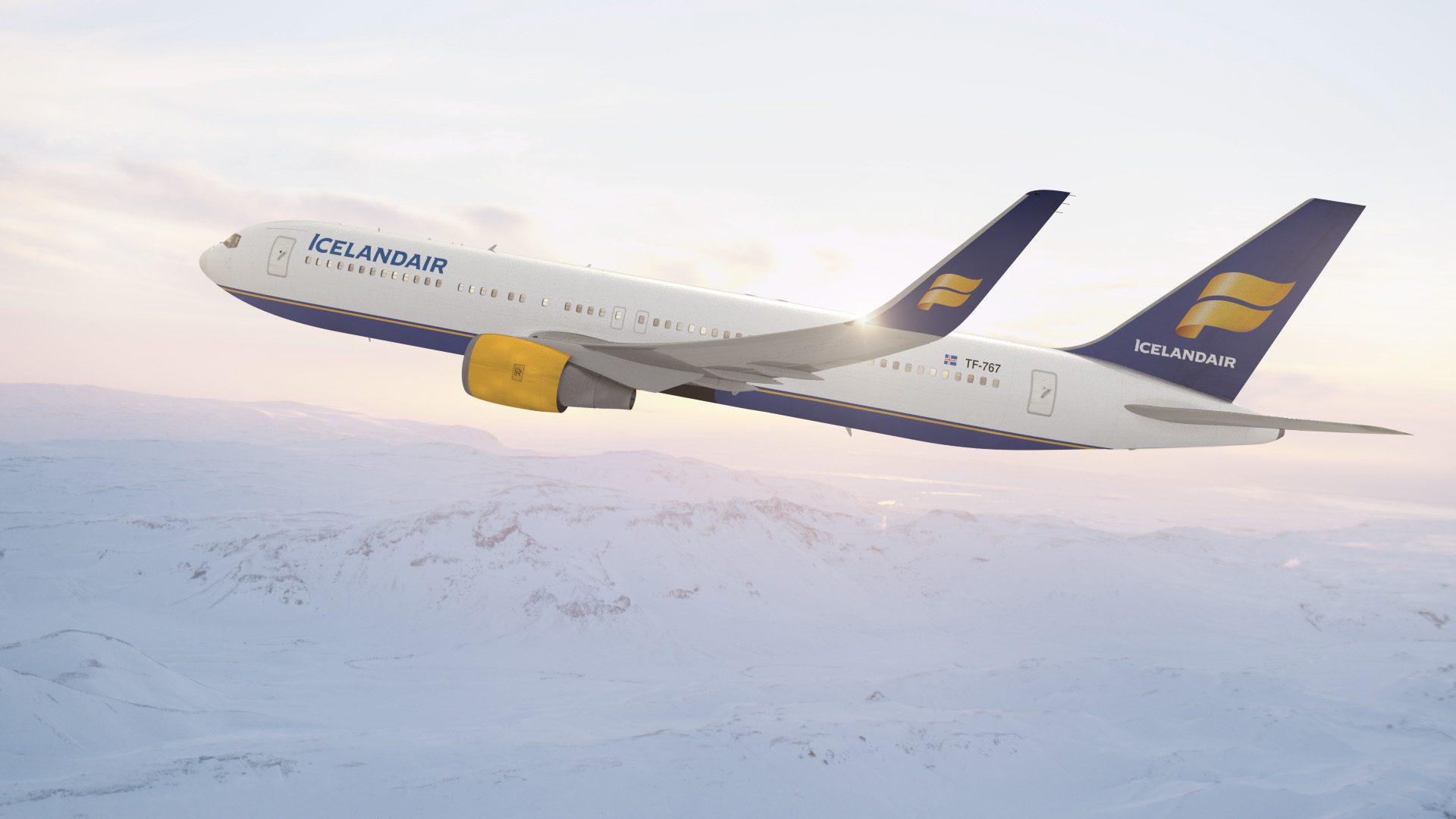
EvK72kRXUAAl6x
Icelandair is likely to get a new shareholder. Private multi-asset management firm Bain Capital has signed a binding agreement to take a 16.6 percent share in Icelandair Group the owner of the airline. The transaction, which is valued at $66.1 million, will be presented to shareholders for approval on July 23. So Bain Capital buys into Icelandair.
Bain Capital is a familiar name on the airline scene, having purchased Virgin Australia last year. A team of administrators selected Bain as the preferred candidate to take over Virgin Australia. The airline had gone into voluntary administration after its owners were unable to secure its future. The take over by Bain hasn’t been without criticism, but since then Virgin Australia has returned as a smaller and leaner airline that focuses on domestic and medium-haul traffic.
The situation with Icelandair is different. The carrier posted a net loss of $376.2 million last year compared to a negative $57.8 million in 2019, but the Group maintained a strong liquidity position with $331.4 million in cash by the end of 2020. Net debt excluding lease liabilities was $104 million.
At its first-quarter results presentation, Icelandair reported a $30.1 million net loss compared to a $240.2 million loss in the same period in 2020. Total liquidity stood at $289.1 million.
On June 11, Icelandair announced that it had sold Icelandair Travel for ISK 1.4 billion to Nordic Visitor as part of its strategy to focus on its airline operations.
So while operating at a loss for the past years, Icelandair’s financial position is sound and improving. The airline said in March that it is in a strong position to capture market share, once travel restrictions to and from Iceland would be relaxed or lifted completely. This would offer opportunities to make Iceland into the transatlantic hub that it has been before the pandemic.
Icelandair ownership very fragmented
However, Icelandair could do with the backing from a solid investor to bolster its liquidity position and as a result, strengthen its position. Looking at the list of the Group’s biggest shareholders, it immediately strikes you that they are all very small. The biggest is Brú Lífeyrissjóður starfs sveit pension fund with a 4.77 percent share, which was reduced to this level as recently as June 21. Gildi – lífeyrissjóður pension fund reduced its share on June 4.
Other shareholders own on average 1.6-2.0 percent of Icelandair Group. This fragmented ownership is the result of a public offering in September when ISK 23 billion ($168 million) was raised as local retailers bought Icelandair shares at large. The combined ownership of retail investors was over fifty percent, which demonstrated the confidence in the airline.
But many small shareholders make it difficult to run the business and raise additional capital. This situation will change once Bain Capital’s 16.6 percent share is confirmed. “We are pleased to have a leading global investor with deep industry knowledge recognize our efforts and commitment to secure Icelandair’s bright future”, Icelandair CEO Bogi Nils Bogason says in a media statement. “We look forward to working with them to bring to fruition the many opportunities we see for Icelandair Group´s winning business model in the post-Covid era where Iceland, the Company’s hub and home, will continue to be an exciting travel destination.”
Bain Capital Credit managing director Matthew Evans said: “While a fulsome recovery of the global travel and tourism market is likely to take some time, we share the management team’s belief that Icelandair has a highly competitive business model built for long-term success along with a strong operational track record, making the Company well-positioned to capitalize on attractive opportunities arising as the recovery progresses. We are confident our experience across the aviation ecosystem and value-added approach will help grow the Company for the benefit of all stakeholders.”
Bain has the right to buy more shares
Bain has subscribed to 5.7 million in new shares at ISK 1.43 per share. In addition to these shares, Bain will receive a warrant for subscription rights amounting to 25 percent of the number of new shares it has purchased. The warrant will be exercisable during a ten-day period immediately following the publishing of Icelandair’s Q2 2022 results and allows Bain to purchase new ordinary shares at a price equaling the price per share of the new shares plus fifteen percent annual interest.
The exact effect of Bain’s new role on Icelandair’s strategy remains to be seen once the agreement has been approved. But the airline will be able to confirm its strategic plan and fleet renewal, which includes the arrival of three Boeing MAX this year and three more during the coming winter period.
Play has commenced services on June 24 and has ambitious plans for the future. (Play)
Start-up Play new rival to Icelandair
The backing of Bain also prepares Icelandair better for the competition from within the country. Fresh on everyone’s mind is the rivalry with long-haul low-cost carrier WOW, which went bust in March 2019. A new Icelandic airline, Play, has commenced operations to London Stansted on June 24, to Tenerife on June 29, and to Berlin on July 1.
Play was formed in 2019 and is owned by over sixty shareholders, but many of its management has roots in WOW like CEO Birgir Jonsson. Play has raised some $47 million in capital and successfully ran a public offering on June 25 that raised another ISK33.8 billion ($274 million). The offering was oversubscribed eight times and will give Play a listing on the Nasdaq First North Growth Market Iceland on July 9. Currently, Birta lífeyrissjóður pension fund is the biggest shareholder at 12.55 percent.
Without legacy liabilities, Play wants to grow the market between Iceland and Europe with a lean and low-cost model. It will start services to Alicante, Barcelona, Tenerife, Copenhagen, Berlin, London, and Paris. It will operate three leased Airbus A321neo’s in a striking red livery, which Play says are on 10-year power-by-the-hour lease agreements from AerCap that are 24 percent cheaper than pre-Covid terms.
The plan is to double the fleet to six in the second phase in 2022, to ten in 2023, to twelve in 2024, and to a maximum of fifteen in 2025. Play has no plans to operate wide bodies on long-haul low-cost routes. The business model will change in 2023 from just point-to-point to Europe to a hub-and-spoke model, in which the network will be grown to include North America but always via Iceland. Staff is under collective bargaining agreements that expire in 2025, with salaries in line with responsibility and work. The airline expects to employ 545 in 2024.
In a business presentation, Play expects to end this year at a $15 million loss but to become profitable from 2022 at $4 million, $17 million in 2023, and $43 million in 2025. Load factors should increase from 71 percent this year to 89 percent in 2025.
Views: 2




